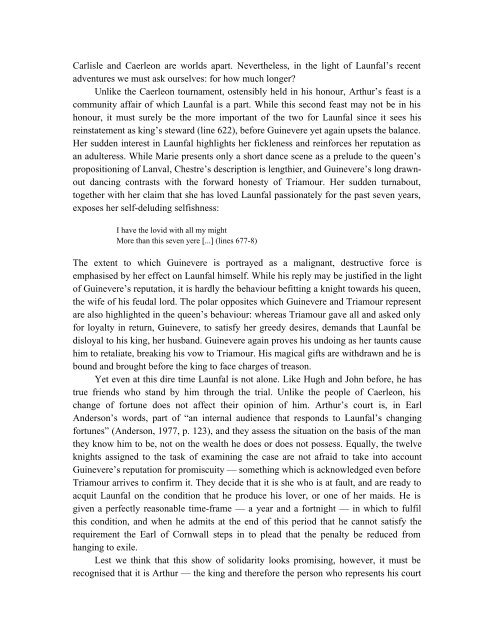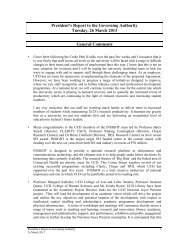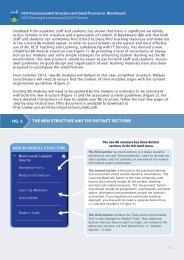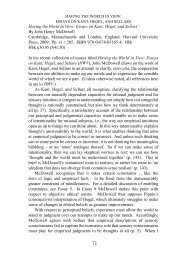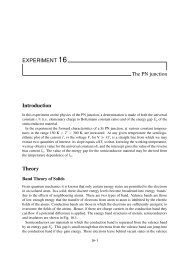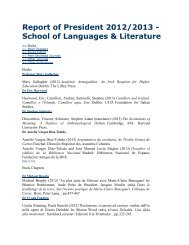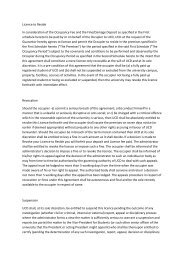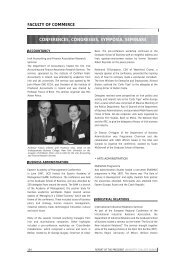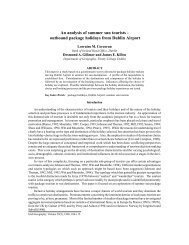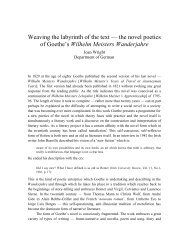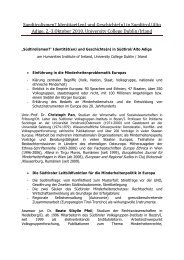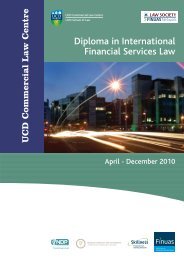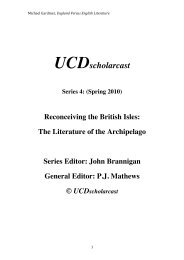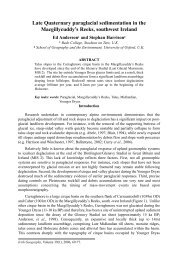Social Disorder and Discontent in Thomas Chestre's Sir Launfal
Social Disorder and Discontent in Thomas Chestre's Sir Launfal
Social Disorder and Discontent in Thomas Chestre's Sir Launfal
You also want an ePaper? Increase the reach of your titles
YUMPU automatically turns print PDFs into web optimized ePapers that Google loves.
Carlisle <strong>and</strong> Caerleon are worlds apart. Nevertheless, <strong>in</strong> the light of <strong>Launfal</strong>’s recent<br />
adventures we must ask ourselves: for how much longer?<br />
Unlike the Caerleon tournament, ostensibly held <strong>in</strong> his honour, Arthur’s feast is a<br />
community affair of which <strong>Launfal</strong> is a part. While this second feast may not be <strong>in</strong> his<br />
honour, it must surely be the more important of the two for <strong>Launfal</strong> s<strong>in</strong>ce it sees his<br />
re<strong>in</strong>statement as k<strong>in</strong>g’s steward (l<strong>in</strong>e 622), before Gu<strong>in</strong>evere yet aga<strong>in</strong> upsets the balance.<br />
Her sudden <strong>in</strong>terest <strong>in</strong> <strong>Launfal</strong> highlights her fickleness <strong>and</strong> re<strong>in</strong>forces her reputation as<br />
an adulteress. While Marie presents only a short dance scene as a prelude to the queen’s<br />
proposition<strong>in</strong>g of Lanval, Chestre’s description is lengthier, <strong>and</strong> Gu<strong>in</strong>evere’s long drawnout<br />
danc<strong>in</strong>g contrasts with the forward honesty of Triamour. Her sudden turnabout,<br />
together with her claim that she has loved <strong>Launfal</strong> passionately for the past seven years,<br />
exposes her self-delud<strong>in</strong>g selfishness:<br />
I have the lovid with all my might<br />
More than this seven yere [...] (l<strong>in</strong>es 677-8)<br />
The extent to which Gu<strong>in</strong>evere is portrayed as a malignant, destructive force is<br />
emphasised by her effect on <strong>Launfal</strong> himself. While his reply may be justified <strong>in</strong> the light<br />
of Gu<strong>in</strong>evere’s reputation, it is hardly the behaviour befitt<strong>in</strong>g a knight towards his queen,<br />
the wife of his feudal lord. The polar opposites which Gu<strong>in</strong>evere <strong>and</strong> Triamour represent<br />
are also highlighted <strong>in</strong> the queen’s behaviour: whereas Triamour gave all <strong>and</strong> asked only<br />
for loyalty <strong>in</strong> return, Gu<strong>in</strong>evere, to satisfy her greedy desires, dem<strong>and</strong>s that <strong>Launfal</strong> be<br />
disloyal to his k<strong>in</strong>g, her husb<strong>and</strong>. Gu<strong>in</strong>evere aga<strong>in</strong> proves his undo<strong>in</strong>g as her taunts cause<br />
him to retaliate, break<strong>in</strong>g his vow to Triamour. His magical gifts are withdrawn <strong>and</strong> he is<br />
bound <strong>and</strong> brought before the k<strong>in</strong>g to face charges of treason.<br />
Yet even at this dire time <strong>Launfal</strong> is not alone. Like Hugh <strong>and</strong> John before, he has<br />
true friends who st<strong>and</strong> by him through the trial. Unlike the people of Caerleon, his<br />
change of fortune does not affect their op<strong>in</strong>ion of him. Arthur’s court is, <strong>in</strong> Earl<br />
Anderson’s words, part of “an <strong>in</strong>ternal audience that responds to <strong>Launfal</strong>’s chang<strong>in</strong>g<br />
fortunes” (Anderson, 1977, p. 123), <strong>and</strong> they assess the situation on the basis of the man<br />
they know him to be, not on the wealth he does or does not possess. Equally, the twelve<br />
knights assigned to the task of exam<strong>in</strong><strong>in</strong>g the case are not afraid to take <strong>in</strong>to account<br />
Gu<strong>in</strong>evere’s reputation for promiscuity — someth<strong>in</strong>g which is acknowledged even before<br />
Triamour arrives to confirm it. They decide that it is she who is at fault, <strong>and</strong> are ready to<br />
acquit <strong>Launfal</strong> on the condition that he produce his lover, or one of her maids. He is<br />
given a perfectly reasonable time-frame — a year <strong>and</strong> a fortnight — <strong>in</strong> which to fulfil<br />
this condition, <strong>and</strong> when he admits at the end of this period that he cannot satisfy the<br />
requirement the Earl of Cornwall steps <strong>in</strong> to plead that the penalty be reduced from<br />
hang<strong>in</strong>g to exile.<br />
Lest we th<strong>in</strong>k that this show of solidarity looks promis<strong>in</strong>g, however, it must be<br />
recognised that it is Arthur — the k<strong>in</strong>g <strong>and</strong> therefore the person who represents his court


